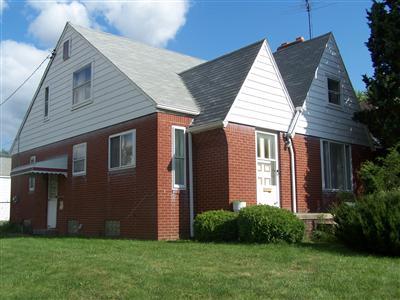I understand the hesitation around paying rental application fees—it can feel like spending your hard-earned money without any guarantees. So, why is this such a common practice, and why do landlords prefer it? Let’s break down the reasons behind it.
1. Application Fees Cover Screening Costs
The fee you pay likely doesn’t go into the landlord’s pocket. It usually goes straight to the third-party service that handles screening, including credit and background checks. It’s purely for covering the costs of getting reliable information about applicants.
2. Comprehensive Background Checks
Some potential tenants wonder why a landlord doesn’t just use a local background check, like CJIS, which only covers certain counties. The reason is that a county-level check isn’t enough to tell the full story. Something might have happened in another state, and landlords need a broader view of your background to make sure everything checks out. These screening services give a national perspective, providing the assurance landlords need.
3. Screening Services Aren’t Free
Even if the landlord only ran a credit check, they’d still need to pay for it. This isn’t like a car dealership, where bulk services drive down costs. Landlords—especially those renting just a handful of units—don’t have the luxury of large-scale discounts. They pay per applicant, which is why they can’t cover this cost for everyone.
4. Application Fees Show Serious Intent
Many landlords also view the application fee as a kind of signal. If you’re willing to invest in applying, it shows that you’re serious about the rental. It’s a small way of “betting on yourself” and demonstrating your genuine interest in securing the property.
5. Application Fees Are the Norm
For years, I haven’t seen many rental properties that don’t charge an application fee. It doesn’t mean they aren’t out there, but it’s rare. Often, rentals that avoid these fees may cater to tenants with very specific circumstances, like low credit, and even then, it’s not a guarantee.
6. One Fee, Multiple Properties
If you’re applying through platforms like Zillow, there is at least a bit of good news. Your application fee is valid for 30 days, and you can use it for other properties on the site during that time. This helps maximize the value of that initial payment and gives you a better chance at finding a suitable place.
7. Pre-Qualifying Without a Fee
There are ways to determine if you’re a strong applicant before paying any fees. You can start by sharing your paystubs, pulling your own free credit report from annualcreditreport.com, and submitting a written application with permission for a local background check. While the landlord may still not waive the formal application fee in order to verify your information, this effort gives a better idea of your chances and shows that you’re proactive.
8. Preparing an Application Package
I recently wrote a guide about putting together an “application package,” especially for those who might face financial challenges. It can also be useful if you’re trying to get a landlord to waive the application fee or at least pre-approve you. You can check it out here: Navigating Rental Applications with Financial Challenges: A Guide.
Wrapping Up
Application fees can be frustrating, especially when you’re applying to multiple properties, but they serve an important role in the rental process. Understanding why they’re in place can help you approach the application process with a clearer perspective, and there are definitely ways to set yourself up for success before you even pay a fee.


